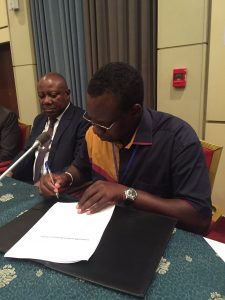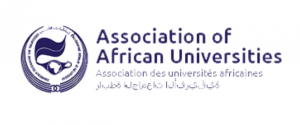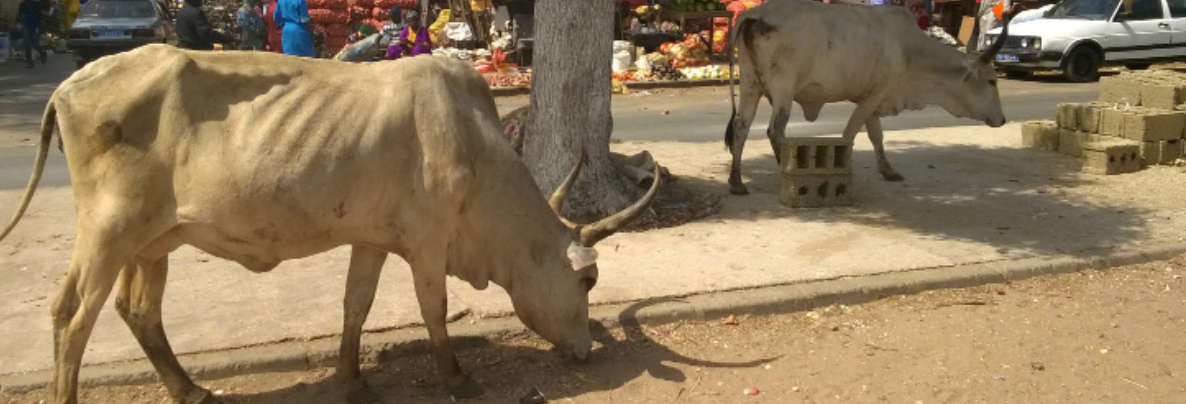The Global Research Alliance (GRA) is very pleased to welcome our 51st Member country, Namibia. Namibia is the eighth African country to join the Alliance.
Namibia recognises that membership in the Alliance can help the country achieve its climate change objectives and its Nationally Determined Contributions (NDC) targets, enshrined in the Paris Agreement.
The 51 member countries now participating in the activities of the Global Research Alliance are Argentina, Australia, Belgium, Bolivia, Brazil, Canada, Chile, China, Colombia, Costa Rica, Democratic Republic of Congo, Denmark, Dominican Republic, Ecuador, Egypt, Finland, France, Germany, Ghana, Honduras, Indonesia, Ireland, Italy, Japan, Lithuania, Malaysia, Mexico, Namibia, Netherlands, New Zealand, Nicaragua, Norway, Panama, Paraguay, Peru, Philippines, Poland, Senegal, South Africa, South Korea, Spain, Sri Lanka, Sweden, Switzerland, Thailand, Tunisia, United Kingdom, United States of America, Uruguay, Vietnam, Zimbabwe.
For more information on the GRA or how to become a member country please contact the GRA Secretariat.
The Global Research Alliance has reached a milestone membership of 50 volunteer member countries from around the world. Our 50th Member, the Democratic Republic of the Congo, has joined us as the result of discussions at the Japan Pavilion side event at the COP23 Event in Bonn last year. We would like to thank Japan for hosting this event.
The Democratic Republic of the Congo is our seventh African country to have joined the membership of the GRA, and we are looking forward to working together to help grow more food while reducing agricultural greenhouse gas emissions.
Below is a list of all our 50 Member Countries:
- Argentina
- Australia
- Belgium
- Bolivia
- Brazil
- Canada
- Chile
- China
- Colombia
- Costa Rica
- Democratic Republic of Congo
- Denmark
- Dominican Republic
- Ecuador
- Egypt
- Finland
- France
- Germany
- Ghana
- Honduras
- Indonesia
- Ireland
- Italy
- Japan
- Lithuania
- Malaysia
- Mexico
- Netherlands
- New Zealand
- Nicaragua
- Norway
- Panama
- Paraguay
- Peru
- Philippines
- Poland
- Senegal
- South Africa
- South Korea
- Spain
- Sri Lanka
- Sweden
- Switzerland
- Thailand
- Tunisia
- United Kingdom
- United States of America
- Uruguay
- Vietnam
- Zimbabwe
The Global Research Alliance is very pleased to welcome our newest Member country, Senegal.
Senegal became a Member at the 10th Biennial Consultative Meeting of the National Experts Committee of the Africa Rice Centre held in Banjul, the Gambia in September 2017. Senegal is our third African Member, and we are looking forward to working together in the future.
The Global Research Alliance is delighted to announce our newest Member country, Zimbabwe. Zimbabwe is the fifth African country to join the Alliance.
Zimbabwe recognises that membership in the Alliance can help the country realise its food security issues and its Nationally Determined Contributions (NDC) targets, enshrined in the Paris Agreement.
The 48 member countries now participating in the activities of the Global Research Alliance are Argentina, Australia, Belgium, Bolivia, Brazil, Canada, Chile, China, Colombia, Costa Rica, Denmark, Dominican Republic, Ecuador, Egypt, Finland, France, Germany, Ghana, Honduras, Indonesia, Italy, Ireland, Japan, Lithuania, Malaysia, Mexico, Nicaragua, the Netherlands, New Zealand, Norway, Panama, Paraguay, Peru, the Philippines, Poland, Republic of Korea, South Africa, Spain, Sri Lanka, Sweden, Switzerland, Thailand, the United Kingdom, Tunisia, the United States, Uruguay, Vietnam and Zimbabwe.
For more information on the GRA or how to become a member country please contact the GRA Secretariat.
The Association of African Universities (AAU) has intensified its support for students from its member institutions to acquire employable skills before graduating from their universities. Through its development partners the African Capacity Development Foundation (ACBF) and the Swedish International Development Agency (Sida), the AAU has secured funds for its member universities in good standing (whose annual subscription payment to AAU is up to date) to offer small grants of up to US$600 per student for graduate internships.
Students may apply online at https://www.aau.org/subs/grin/
The deadline for application is Friday 19th May, 2017.
Conditions for the Award of the Grant
• Grant applicants should be students pursuing post-graduate degree programmes. Applicants should note that the grants are for training purposes only and not meant for the completion of theses or dissertations.
• Applicants shall commit to undertake an internship programme for a period between twelve (12) and twenty-four (24 weeks).
• Applications should be supported with an authorisation note from the Head of Department of the applicant’s university as well as an official acceptance letter from the establishment wishing to host the intern.
• All applicants should submit a detailed curriculum vitae.
• A detailed but confidential supervisory report would be required from the host institution on the progression of the applicant during the period of internship, and from the university of the applicant on academic progress after the period of internship.
• Past beneficiaries of the AAU Internship Scheme are not eligible to apply.
• Consideration would be given to applicants who have no practical work experience.
Selection of successful applications would be based on a quota system revolving around gender (at least 40% of beneficiaries should be females); country (not more than 10 applicants per country) and language (at least 30% from Francophone institutions).
Previous studies using models have shown that in theory, improving the health of livestock increases productivity while decreasing relative emissions intensity (EI). A similar study in East Africa has shown the same trend. With the removal of the endemic disease trypanosomiasis, cattle on East African farms increased productivity and decreased EI per unit of protein at between 2 and 4%, depending on the production system. In West Africa, the removal of trypanosomiasis led to decreased EI in some systems but increased EI in others, because when the disease was removed more males were kept and used for draft purposes.
The study was funded by the International Livestock Research Institute under Global Research Alliance Partner CGIAR (CCAFS), and included Animal Health & GHG Emissions Intensity Network Champion, Dr Michael Macleod (SRUC), and Network Coordinator, Dr Timothy Robinson (ILRI).
Read more about the study (page 4)
Read more about the Animal Health & GHG Emissions Intensity Network
A document reporting on the Animal Health and Greenhouse Gas Emissions Intensity Network of the Global Research Alliance’s African regional meeting in Addis Ababa Ethipoia, November 2014 is now available. Please click the link below to locate the document.




